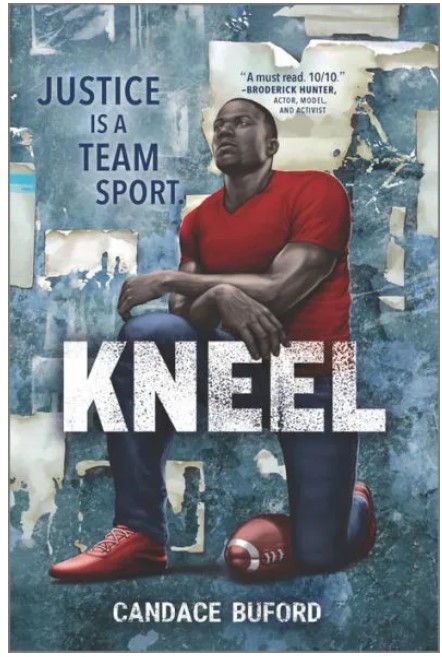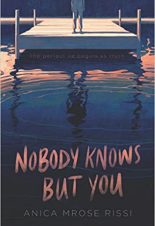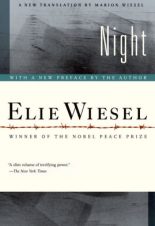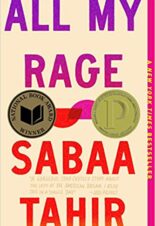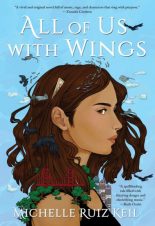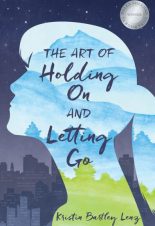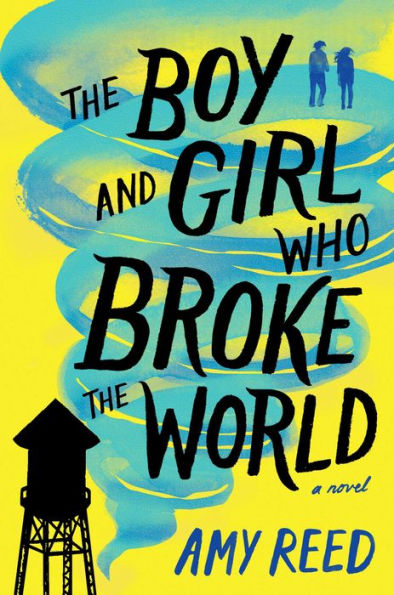
Buy This Book
“No one ever makes shows about poor, sleep-deprived kids being stalked by crows and detectives, about kids whose houses are trying to kill them, about kids who have to keep so many secrets their heads are about to burst, about kids who keep losing everyone they love. No one ever makes shows about kids like me,” Billy. —The Boy and Girl Who Broke the World
The Boy and Girl Who Broke the World
by Amy Reed
AR Test, Diverse Characters, Must Read
14+
Score
6.0
464
The Boy and Girl Who Broke the World switches between the perspectives of Billy and Lydia—two teenagers who live in a poverty-stricken area in the Pacific Northwest called Fog Harbor. After their high schools merge, the two outcasts form a strange friendship. As they learn more about each other, strange things begin to happen around them: they experience unexplainable weather events and earthquakes, and they see apparitions that nobody else sees. The narrative borders on magical realism, as the strange events that plague the narrative seem to be tied to the characters’ personal and emotional journeys.
Lydia, whose mother disappeared when she was a child, is emotionally closed-off and spends all her days in the makeshift dance studio behind her father’s bar. Billy lives in a decrepit house with his emotionally abusive grandmother, where he spends all his time watching therapy talk shows on the 24-hour Alcoholics Anonymous TV channel. The setting of Fog Harbor is set in a larger world that serves as an exaggerated parody of late-2010s America, where the president has been replaced by a king. Savvy readers may recognize the King’s mannerisms and policies, as the figure seems to be a caricature of America’s 45th president, Donald Trump.
Caleb, who is Billy’s uncle, Fog Harbor’s most famous resident, and one of the world’s most notorious musicians, frequently speaks in interviews about his upbringing in poverty-stricken, drug-addicted Fog Harbor. When Caleb—a heroin addict who has been through rehab several times—disappears following a violent breakdown and shows up in Billy’s attic, Billy is tasked with keeping a secret and is forced to reckon with his family’s dysfunctional past. Meanwhile, Lydia begins to take dance lessons for the first time and is followed around by a small apparition that seems determined to make trouble for her.
The Boy and Girl Who Broke the World is as wordy as its title, with many wonderful lines and genuinely touching moments in the main characters’ central friendship. It is honest and discomforting in its depictions of a small town ravaged by poverty and drug addiction. Whether or not readers recognize their own hometowns in the foggy surrealist landscape, they will find the characters’ narrative voices compelling and achingly human.
Despite the harsh language and troubling subject matter, this narrative shines, especially in its portrayal of the main characters’ innocence and unwavering hope in the face of despair. Billy’s dogged determination to see the best in everyone is a heartrending and almost blinding contrast to his grandmother’s neglect and his family’s history of addiction. Lydia’s outer sarcastic façade hides her inner sensitivity and unhealed trauma at having lost her mother. Secondary characters like Lydia’s father and Billy’s grandmother create a cast of irresponsible adults who are imperfect and real.
Despite its political undertones, The Boy and Girl Who Broke the World is not quite a call to action or to political revolution. It’s something more subtle—perhaps a call to be kinder to one’s neighbors—but it’s engaging and surprising in the way it delivers this message. This book is the perfect read for a curious older reader who’s looking for a unique, high-quality literary narrative.
Sexual Content
- Billy sometimes watches a show called Sexy Sober Survivor, where “fashion models go to rehab, except the rehab is on a deserted island…and they’re naked the whole time.” He wonders “whose job it is to put all those black bars on their interesting parts,” and “inevitably started thinking about what’s under those black bars, and then things got awkward again, and I had to excuse myself and go upstairs to my room, and hope… that this won’t be the time the house decides to finally collapse on me.” When the firefighters dig him out, he won’t be trying to “hide my boner when my arms are pinned under this thousand-pound beam.”
- A therapy-TV personality sometimes tells “the story of how she used to be a prostitute who lived in a van by the river.” The reader never actually learns the story.
- Lydia remarks that her peers are “just hoping they’re not the one who gets pregnant… as if babies and death are things you catch, as inevitable as a cold.”
- While walking home, Lydia is harassed. “‘Looking good, baby,’ some douchebag yells out of a truck.” She gets them to go away by shouting, “Hi, I have AIDS and gonorrhea and a very small tail fused to my spine. Want to fuck?’”
- The book frequently references a fictional YA series called “Unicorns Vs. Dragons,” where the hero “keeps his unicorn love interest chained up in his mountain cave to ‘protect her,’ which strikes Lydia as ‘rape-y.’”
- The King, America’s dictatorial monarch, “ordered up a girlfriend, kind of like how [Lydia’s dad] ordered up a wife from the Philippines.”
- Billy’s grandmother used to tell him “how I’m just a late bloomer and that’s good because it’s better that I stay her sweet boy as long as possible instead of turning into a sex-crazed pervert too early like most guys do.”
- Caleb, Billy’s uncle, supposedly “got a girl pregnant when he was fourteen and Grandma had to pay for the abortion because no one else would.”
- Billy recalls how, upon being approached by a tour bus for photos, Uncle Caleb’s friend Gordon “whipped out his penis and started peeing in the tour’s direction.”
- In an interview, Uncle Caleb’s girlfriend recalls how “the sex that night was amazing.”
- In another interview, the girlfriend “starts kissing [Caleb], and then she straddles him right there on the couch and starts unbuttoning his shirt, and then the interview is over.”
- Caleb says he once “screwed an old lady for a case of beer.”
- Lydia recalls how a regular in her father’s bar “has been staring at me since I was thirteen… he feels the need to tell me I’m pretty enough to be a supermodel.” Lydia finds this “gross because it proves that he’s looking at me the way drunk lonely men look at girls that are way too young for them. This is not a healthy environment for a teenager.”
- A local says, “I heard [Billy’s] mom was still turning tricks long after she was showing.”
- Lydia tells Caleb, “I guess you think all women should dress like your girlfriend and drip sex diseases everywhere they go.”
- Lydia, after experiencing an emotional moment with Billy, thinks, “This is probably something close to how people feel after they sleep with someone and regret it.”
- Billy thinks, “I would probably jump at any opportunity to do anything the least bit sex-related with an even non-beautiful girl who miraculously wanted to with me.”
- Billy says, “I think giving someone art is just about the most intimate gift a person can give, except for maybe sex toys or something.”
- A teacher tells Billy about “some kind of magic stone egg she bought from her life coach that she puts in her vagina, which I’m pretty sure is illegal for her to talk to me about.”
- Lydia kisses Natalie, a girl from her dance studio. “I lean in and feel the world expanding as my lips touch hers. I feel everything pulse open and wash clean.”
- In the epilogue, Billy lives with his girlfriend. Billy says, “It’s not even like we spend all our time doing hanky-panky (though that is a large percentage of what we do).” The reader is never given a clarification as to what hanky-panky is.
Violence
- Billy recalls how his grandmother “threatened to smack my chin, even though these days, smacking chins is mostly considered child abuse.”
- Much of the violence in the story is observed by the main characters when their high schools merge. Billy’s grandmother suggests he bring a steak knife to the first day of school.
- Students have to use plastic utensils now because “a girl stabbed a guy last week with her fork.”
- During a fight at school, “one guy pummels another… and then blood starts flying.”
- Billy recounts how a kid in his class “got so mad when he had to put his phone away that he started punching a teacher in the nose.”
- Lydia throws a glass at a drunk man at the bar. “The glass barely misses his face as it smashes into the wall behind him.”
- During his public breakdown, “Caleb’s tiny, sweatpantsed figure is swinging a guitar around, chasing his bandmates, who are fleeing off the stage… Then he throws the guitar into the audience, then the mic stands, then the drums, and the muffled voices turn to screams.”
- In another public appearance, he “tears the mic off his shirt, jumps out of his seat, and smashes his beer bottle on the camera.”
- Billy’s grandmother tells a journalist to kill himself.
- A news report says that the King “accidentally bombed the wrong village somewhere this morning and killed a few thousand innocent people.”
- Caleb’s girlfriend expresses a desire to “bomb all of Washington State west of Olympia so they can give it back to the trees.”
- Billy’s neighbor, who is in an extremist religious cult, threatens another resident with “one of those big scary guns people only use in wars and mass shootings and starts chasing the guy down the street.” Billy watches the scene from his porch, and the situation de-escalates over three pages.
- Caleb recalls how Billy’s grandfather “smashed up the house on a regular basis.”
- Billy thinks that if he expressed his true environmental opinions, the locals would “probably murder me and tie my dead body to a tree and write on it with blood, ‘Are you happy now, tree hugger?’”
- A riot breaks out over an announcement regarding logging rights in the forest. “One man pushes another, who falls into another man behind him, who falls into another, who falls into another man behind him, and then all hell breaks loose, the crowd a flurry of pushing, punching, shouting, glass breaking, and random things on fire.” Billy watches it on TV.
- School is let out early because of a bomb threat.
- Lydia tells Caleb, “If you try to commit suicide in my house, I will fucking kill you.”
- In addition to verbal abuse, Billy’s grandmother hits him. This only happens once in the narrative, but it is implied to have happened before. When Billy tries to approach her after she’s heard a distressing news story, “She spins around, whacks my arm, lunges, and even sitting on the couch she’s strong enough to push me to the floor.”
- The King drops a nuclear bomb in the Pacific, causing a tsunami to destroy most of Fog Harbor. The climax of the book follows the characters as they race to higher ground. Many people survive, but a loss of life is implied.
- “Cult Girl” points a gun in a reporter’s face to get her to go away.
Drugs and Alcohol
- An old town rivalry is rumored to have started with “opium-crazed mill workers.”
- Billy’s town has “the highest per capita heroin deaths in the state.”
- Billy says he’s never been tempted to do drugs because “I’m not cool enough to be straight-edge, and I’m not smart enough to be a nerd, so mostly I’m just sober out of fear.” His grandmother often tells him “that addiction is in my blood and I’m a junkie waiting to happen, and I figure going through withdrawal once as a baby is more than enough.”
- Lydia’s father runs a bar, so she spends most of her time there. “Technically, it’s against the law for me to be in here since I’m underage, but no one cares about laws like that here.”
- Caleb smokes cigarettes and weed. While hiding in the attic, he enlists Billy to buy him weed from his old friend and dealer, Gordon. Billy doesn’t want Caleb to relapse, but Caleb says, “In the great scheme of things I’ve done, weed is barely a drug.”
- When visiting Gordon to buy weed, Billy watches him take “some kind of contraption with water in it from the table, grips it between his legs while the hand of his good arm holds a lighter to it, inhales, and exhales a giant cloud of sweet, but slightly rancid-smelling smoke.”
- Billy completes the drug deal and receives “a plastic baggie of dry greenish-brown clumps” (marijuana).
- During a later drug deal, Gordon hands Billy a beer and offers him “molly” and “nitrous cartridges.” Billy doesn’t drink the beer or take Gordon up on his offer.
- When Caleb smokes all his weed and falls asleep, Billy wonders, “Can someone die of a marijuana overdose?”
- Caleb tells Billy to ask his drug dealer “where to get some dope.” Billy tells him, “I’m not going to help you kill yourself. If you want heroin, you can leave this attic and get it yourself.”
Language
- Fuck, shit, damn, hell, goddamn, and asshole are used frequently. Bitch, bastard, crap, and “screw you” are used infrequently.
- Lydia works at a fast-food restaurant called “Taco Hell.”
- A regular at Lydia’s father’s bar calls Billy “retarded.”
Supernatural
- Some of the events that surround Billy and Lydia seem supernatural. During one of the final scenes, while the town is being threatened by a natural disaster, Lydia and Billy see unicorns and dragons running through the streets. “What looks like a dragon and two unicorns run by, way larger and way faster than anyone in costume could possibly be.” The narrators never get a good look at the creatures.
- A small girl nobody else can see follows Lydia around, often kicking her or breaking things.
- A fan asks Billy if he is Caleb’s ghost.
Spiritual Content
- Billy’s neighbors are in a cult. Billy often sees the neighbors’ child—a girl his age— in the window, and he refers to her as “Cult Girl.”
- Cult Girl and her family attend “some weird church in a trailer by the freeway that says women are supposed to stay in the home and kids should be kept pure and not have any contact with sinners, aka everyone else.”
- When Billy gets the chance to talk to Cult Girl, he thinks, “For all I know, the only history she’s ever been taught is stories from the Bible. She might still think the Earth’s flat.”
- Later, Billy asks Cult Girl what happened after the Biblical great flood. Ruth says, “The waters took a while to recede, but then there was a brave new world to conquer… Then God invented rainbows. But it’s just a story. God also said He’d never make it flood again. But He lied… God made it flood because He realized He made a mistake and humans were evil and needed to be destroyed.”
- Lydia’s father, who is going through a “Wicca phase,” tells the kids, “Samhain is the ancient pagan holiday marking a time when the boundary between this world and the spirit world thins and can be more easily crossed… I can tell you some incantations you can use to summon the spirits.” The kids don’t take him up on his offer.
- Billy says, “No one ever taught me how to pray, but I did it anyway. I got on my knees and everything. I asked God or whoever to protect my uncle and keep him safe.”
- A group of kids at school form a “morning prayer circle table,” where they stand up from their seats and shout, “Who’s in the house? J.C.’s in the house!” Billy thinks, “Who in their right mind would thank God for any of this?”
- A teacher tells Billy about “chakras and crystals.”
- Lydia calls Christmas “a marketing conspiracy in the guise of a religious tradition I don’t even believe in.”
- During an emergency, a girl from Lydia’s dance studio runs away from her parents because they “kept praying. It was driving me crazy.”
- Caleb goes to a Thai meditation retreat and says he wants to become a monk.
- Billy says, “Apparently that Buddha guy that Caleb likes came up with the idea [of living in the moment] way before therapists did.”
by Caroline Galdi
“No one ever makes shows about poor, sleep-deprived kids being stalked by crows and detectives, about kids whose houses are trying to kill them, about kids who have to keep so many secrets their heads are about to burst, about kids who keep losing everyone they love. No one ever makes shows about kids like me,” Billy. —The Boy and Girl Who Broke the World
Latest Reviews
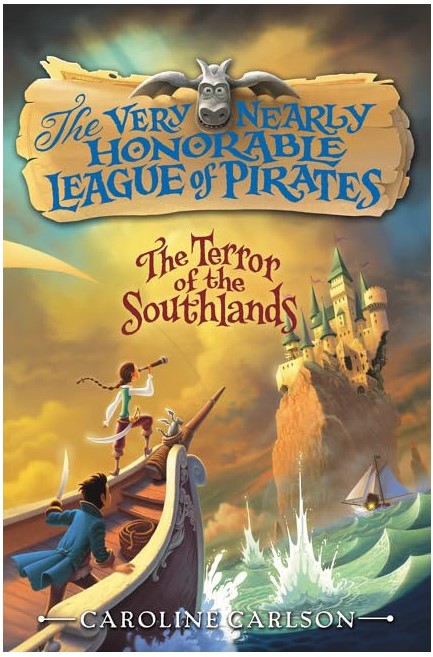
The Terror of the Southlands
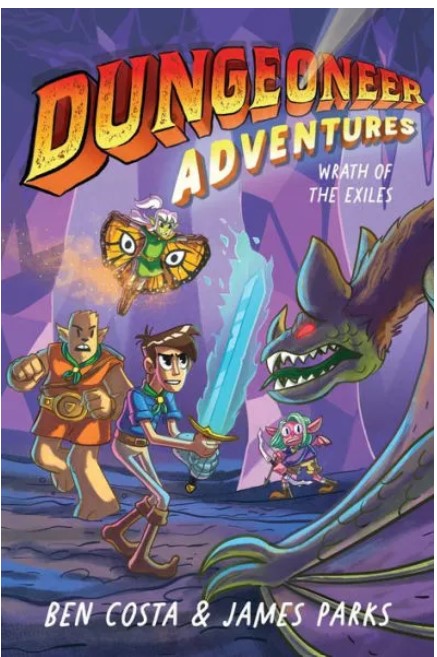
Wrath of the Exiles
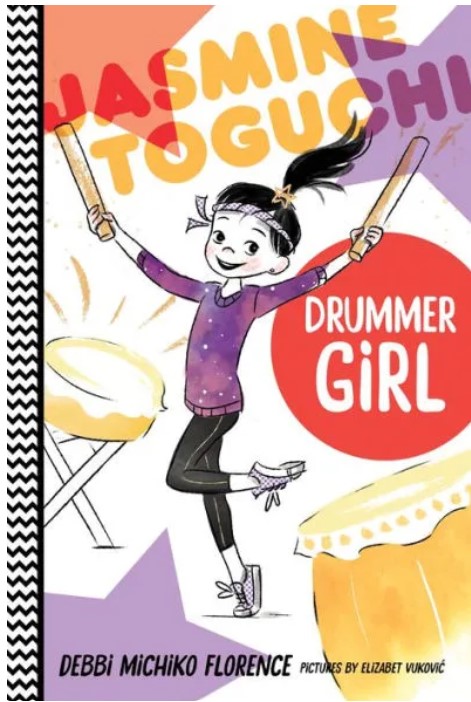
Jasmine Toguchi, Drummer Girl
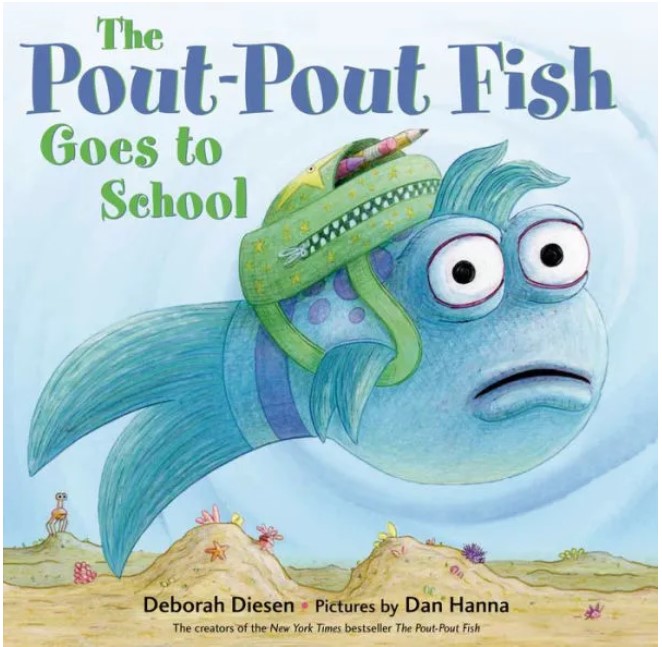
The Pout-Pout Fish Goes to School
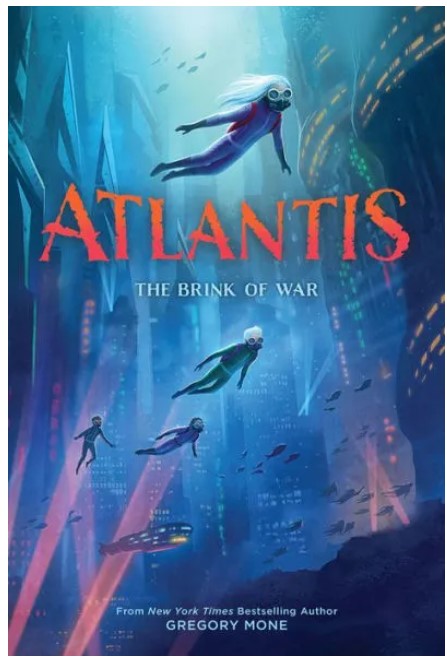
The Brink of War
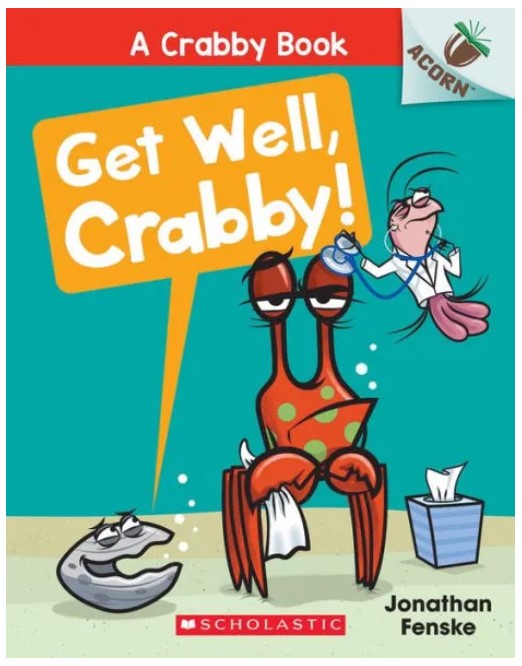
Get Well, Crabby
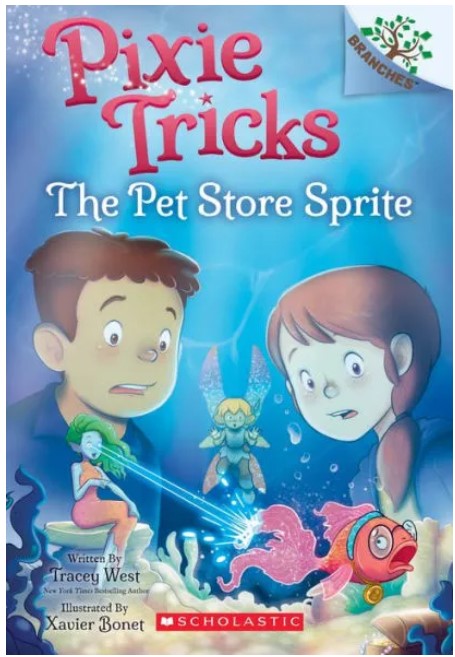
The Pet Store Sprite
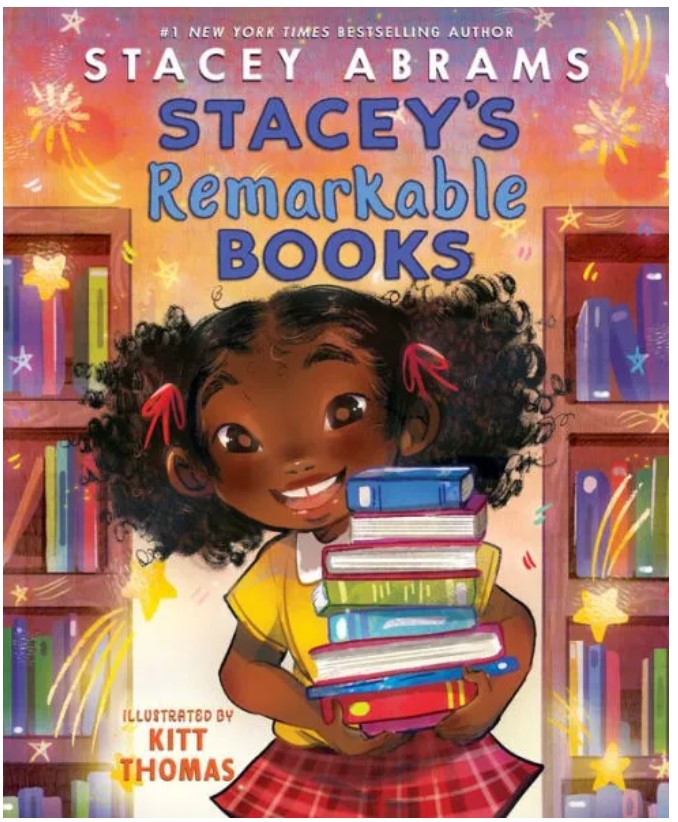
Stacey’s Remarkable Books
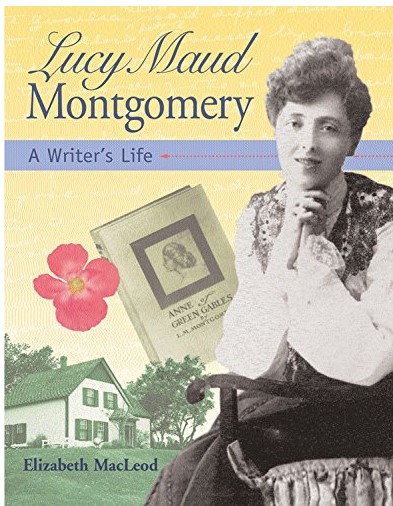
Lucy Maud Montgomery: A Writer’s Life
